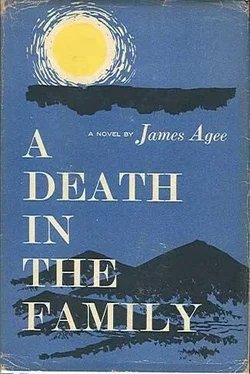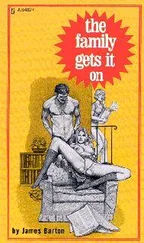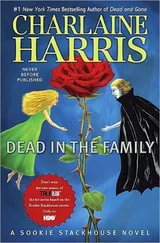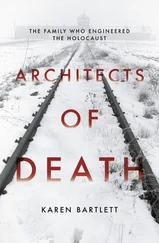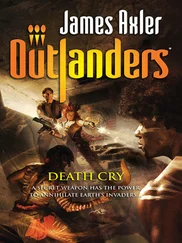And again he would suspect some meanness behind it and so would refuse to say until they had coaxed him sufficiently and then out it came, "My mama"; and at that point some of the smaller boys were liable to spoil everything by yelling and laughing, but often even if they did, the older boys could save it all by sternly crying, "You shut up! Don't you know a pretty song when you hear it?" and by turning to him, with faces which shut out those boys and included him among the big boys, and saying, "Don't you care about them, Rufus, they're just ignorant and don't know nothing. You sing your song." And another would chime in, "Yeah, Rufus, sing it again. Gee, that's a pretty song"; and a third would say, "And don't forget to dance"; and for this reduced but select audience he would do the whole thing over again.
At that point someone usually said, abruptly, "Come on, we got to go," and as suddenly as if a chair had been pulled from under him, he would be left by himself; they hardly even clapped their hands before they walked away. But some of the boys with the nicest faces always took care, before they left, to tell him, "Gee, thanks, Rufus, that was mighty pretty," and to say, Don't you forget, you be here tomorrow"; and this more than made up for the thing which never failed to perplex him. Why did they walk off, so suddenly as all that? Why did they all keep looking back and laughing in that queer way; subdued talk, their heads close together, and then those sudden whoops of laughter? It almost seemed as if they were laughing at him. And once when one of the bigger boys suddenly flung up his arms and whirled into the street, piping in a high, squeaky voice, "I'm a little busy bee," he was quite sure that they had not really liked the song, or him for singing it. But if they didn't, then why did they ask him to sing it? And then once he heard one of them, far down the block, squeak, "My mama," and he felt as if something went straight through his stomach, and they all laughed, and he was practically certain that to those boys at least, the whole thing was just some kind of mean joke. But then he remembered how nice the boys he liked best and trusted most had been, and he knew that anyway the boys he liked best were not in any way trying to tease him.
After a while, however, he began to wonder even about them. Maybe their being so extra nice just their way of getting him to do things he would never do if they were only nice part of the time and then laughed at him. Yet if they were nice all the time, it must be because they honestly meant it. And yet the way some of the others laughed, what he was doing must be wrong or silly somehow. He would be much more careful. He would be careful not to do anything or say anything anybody asked him to, unless he was sure they were really nice and really meant it. He now watched even the boys – he liked best with very particular caution, and they saw that unless they were much more shrewd the game was likely to be spoiled again. They began to promise him rewards, a stick of chewing gum, the stub of a pencil, chalk, a piece of candy, and this seemed to convince him. The less shrewd of the boys often did not give him the promised reward, and this of course was more fun, but the smarter ones were always consistent, so that he never refused them. It was all so easy, in fact, that it began to bore them. They began to appreciate the tricks the more stupid boys played, one getting down behind him while he danced and another pushing him over backwards, but they were intelligent enough never to take part in this, always to pretend thorough disapproval, always to help him to his feet and brush him off and console him if he had struck his head hard and was crying, and always to conceal their astonished delight at his utter bewilderment and gullibility and their astonished contempt at his complete lack of spirit to strike out against his tormentors, his lack of ability, even, for real solid anger. And because they were always there, and always seemed to be on his side, they could always keep him sufficiently deceived to come back for more than anyone in his right senses would come back for.
The oldest of them began to be obscurely ashamed, as well as bored. They were all much older and smarter than he was; even the youngest of the boys who went to school were enough older than he was that it seemed no wonder that he was continually fooled, and that he never fought back. They felt that this little song, for instance, was too sissy to be fun for much longer. They felt that more violent things should be done. But they themselves could not do such things. If they showed him they were not on his side, the fun would all be over. And even if it were not, they knew that it would be unfair of them to do the really violent things, which absolutely required violence in return, to anyone so much younger and smaller, no matter how big a fool he was. Besides, they had received more than enough hints that even if he were driven to fight, he would not have the nerve to, probably wouldn't even know he had to. They were curious to see what would happen. They left the game wider and wider open to the smaller, crueler and more simple boys. But it was no good. He would just look at them with surprise, pain and reproach, and get up and walk away; and if any of these older, normally friendly boys consoled him too closely, he would burst into sobs which disgusted as well as delighted them.
At length they found the right formula. They would put some boys as small as he was, up to some trick which nobody bigger would have any right to do.
After dinner the babies and all the children except Rufus were laid out on the beds to take their naps, and his mother thought he ought to lie down too, but his father said no, why did he need to, so he was allowed to stay up. He stayed out on the porch with the men. They were so full up and sleepy they hardly even tried to talk, and he was so full up and sleepy that he could hardly see or hear, but half dozing between his father's knees in the thin shade, trying to keep his eyes open, he could just hear the mild, lazy rumbling of their voices, and the more talkative voices of the women back in the kitchen, talking more easily, but keeping their voices low, not to wake the children, and the rattling of the dishes they were doing, and now and then their walking here or there along the floor; and mused with half-closed eyes which went in and out of focus with sleepiness, upon the slow twinkling of the millions of heavy leaves on the trees and the slow flashing of the blades of the corn, and nearer at hand, the hens dabbing in the pocked dirt yard and the ragged edge of the porch floor, and everything hung dreaming in a shining silver haze, and a long, low hill of blue silver shut off everything against a blue-white sky, and he leaned back against his father's chest and he could hear his heart pumping and his stomach growling and he could feel the hard knees against his sides, and the next thing he knew his eyes opened and he was looking up into his mother's face and he was lying on a bed and she was saying it was time to wake up because they were going on a call and see his great-great-grandmother and she would most specially want to see him because he was her oldest great-great-grandchild. And he and his father and mother and Catherine got in the front seat and his Granpa Follet and Aunt Jessie and her baby and Jim-Wilson and Ettie Lou and Aunt Sadie and her baby got in the back seat and Uncle Ralph stood on the running board because he was sure he could remember the way and that was all there was room for, and they started off very carefully down the lane, so nobody would be jolted, and even before they got out to the road his mother asked his father to stop a minute, and she insisted on taking Ettie Lou with them in front, to make a little more room in back, and after she insisted for a while, they gave in, and then they all got started again, and his father guided the auto so very carefully across the deep ruts into the road, the other way four LaFollette as Ralph told him to ("Yeah, I know," his father said, "I remember that much anyhow."), that they were hardly joggled at all, and his mother commented on how very nicely and carefully his father always drove when he didn't just forget and go too fast, and his father blushed, and after a few minutes his mother began to look uneasy, as if she had to go to the bathroom but didn't want to say anything about it, and after a few minutes more she said, "Jay, I'm awfully sorry but now I really think you are forgetting."
Читать дальше
